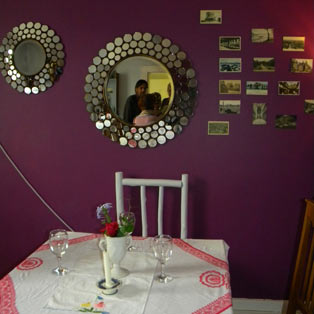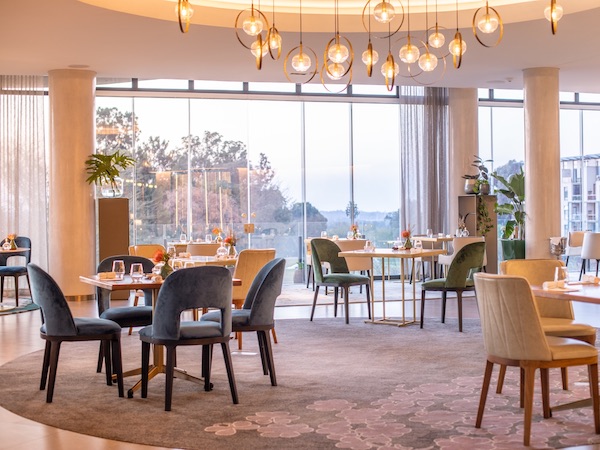News
Life by design
Wednesday, May 11th, 2011
Lientjie Wessels Denton is an artist through and through. She started adult life as a fine artist, moved on to interiors when she opened a design shop called Lemon Lounge, which led to doing styling for local interior magazines. Then came Li-Bel, which Lientjie describes as her time of urban living.
She and husband Robert Denton found a corner on the edge of Pretoria’s rapidly changing suburb of Sunnyside and set up shop and their avant-garde venue became a hub for the artistically inclined. They also acquired a penthouse apartment in the centre of Sunnyside so that they could completely inhabit the lifestyle they were promoting.
The cooking, which grew with Li-Bel, happened almost accidently. “It began with scones to complement tea and coffee,” says Lientjie, who has always loved to cook and hopes to be doing it for many years to come.
Her (and Robert’s) latest venture – Albiz(z)ia (the name refers to a thorn tree species found in the area – the couple haven't quite decided whether to spell it with one or two 'z's yet) – is situated in the mining town of Cullinan, where they are settling into an historic mining house. Change is this creative chef’s driving force, her raison d’être. “I know there are people who like concentrating on one thing and perfecting it, but I get bored with both the preparation and the taste.”
Perhaps this is the reason Lientjie finds it difficult to define her cuisine – it’s constantly changing. She reminds me of an innovative home cook who moves from one thing to the next to establish a robust kitchen routine. Her food is a blend of old and new, the tastes of Asia are always hovering in the background, but her current passion is Italian food. “I’m tickled by the simplicity of the food,” she says, although she introduces her own slant to this particular cuisine.
Inspired by their newfound space, big garden and spacious house, Lientjie and Robert are in the process of establishing and embellishing a garden, including their own vegetable patch. She has also planted a rose garden and has introduced herbs and an elderflower tree, all of which will pop up on your plate in the not too distant future.
Moving to this tiny village has reignited her creative freedom. “It became too much of a job in the end at Li-bel,” she confesses. Albiz(z)ia is open from Fridays to Sundays, which allows her to spend more time planning, shopping and preparing. “I love travelling. It might simply be two days in Joburg to source interesting ingredients, or meeting people who are doing fascinating things with spices,” she says. All of these will inform a future meal and influence the style and mood of the menu.
Exactly the same happens with Lientjie’s interiors. Because of the traditional old-fashioned feel of the house, the interiors are designed to complement that, as well as her contemporary eye. People often popped into Li-Bel to keep up to date with her design innovations, and it’s sure to be the same at Albiz(z)ia.
“I know there’s a hurriedness about everything I do. I’m not the kind of person who likes lingering too much,” she admits. “I’m excited by new things but also find appeal in anything old.” That is the delight of what Lientjie does. Not every dish will be perfect and some combinations might not be your thing at all. But she’s happiest when creating colourful feasts for people who have the time to linger and enjoy whatever she is happiest making that day.
She laughs when she admits that she’s not the most adventurous eater. “I usually have the same thing at my favourite restaurants,” she says. But if you follow the Dentons around, you will also discover some of the best-kept food secrets in Gauteng. They would rather pop into a small Chinese corner shop or source the best Portuguese fish in town than go to the more popular haunts.
She’s also keen to allow chefs to do their thing. “If I visit a good restaurant, I want the chef to make the choice,” she says. And that’s exactly what to do when stepping into her dining room – allow her carte blanche.
It’s going to exciting to watch this contemporary mom-and-pop shop evolve into something special.
By Diane de Beer








